Mozambique: WHO Director-Genral calls for local medicine production
Mozambique: INS warns against possible third Covid-19 wave

in file CoM
The Deputy Director of Mozambique’s National Health Institute (INS), Eduardo Samo Gudo, speaking on Radio Mozambique on Monday, warned of the risk that the country could face a possible third wave of Covid-19 infection, more aggressive than the first two waves.
Last Friday, the INS declared that the second wave was over – but Samo Gudo stressed this did not mean the pandemic was over, since community transmission of the disease is continuing. There was a potential for the disease to speed up, and burst out in a third wave, if citizens fail to comply with preventive measures.
“The potential for a third wave exists”, he warned. “That’s a matter of concern because the indicators show that the number of active chains of transmission is now three times greater than it was before the second wave”.
The vaccine against Covid-19 is, as yet, available in only limited amounts. It was thus crucial to delay, and soften, the impact of any possible third wave.
“We have to ensure that a possible third wave is softer, and does not result in many hospitalisations and deaths”, said Samo Gudo. The longer a third wave could be delayed, the more time the country would have to vaccinate all the people in the groups most at risk.
These considerations, he added, “oblige us to be more careful. They are a warning that all of us must continue complying with the preventive measures, and ensure that relaxation is gradual”.
The damage a third wave could do must not be underestimated – Samo Gudo pointed out that in several countries the third wave of Covid-19 had brought health systems to the brink of collapse.
To avoid a similar scenario in Mozambique, the current preventive measures must remain in force, and citizens should understand the justification for the current curfew (running from 22.00 to 04.00) in most of the country’s sizeable cities and towns.
The pandemic was not going to disappear any time soon, said Samo Gudo. Instead, it would last for years, with repeated waves of infection.
That meant that reforms should be undertaken in many sectors of Mozambican society, so as to ensure that the resumption of economic activities takes place in a low risk scenario, and does not result in further spreading of the disease.
He called for “innovative and transformative” reforms to avoid a scenario where economic and social sectors are repeatedly reopened only to be closed again shortly afterwards, “which wears people out and has a severe impact”.
He recognized that it is difficult to live in what has become known as “the new normal”, since Mozambicans were used to living without face masks and without social distancing.
“Our children and grandchildren are being born into the new normal”, he said. “For us it can be relatively difficult, while for our children and grandchildren, this will be normal for them”.
Among the innovations Samo Gudo foresaw are a greater reliance on distance working, and on technological changes that avoid concentrations of people. There should also be means of ensuring that, in order to deal with documents, citizens do not have to go in person to queue up at public institutions.
Since viruses constantly mutate, Samo Gudo thought annual vaccinations against new variants of Covid-19 may well be necessary


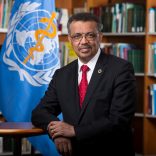
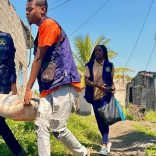

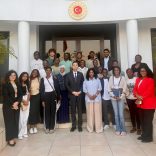
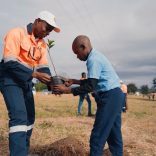
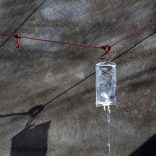





Leave a Reply
Be the First to Comment!
You must be logged in to post a comment.
You must be logged in to post a comment.